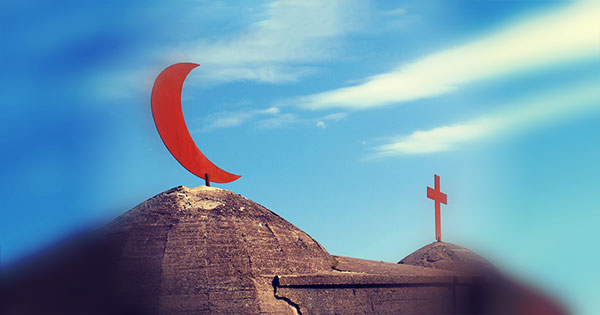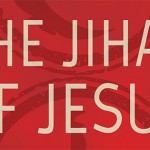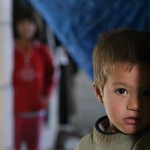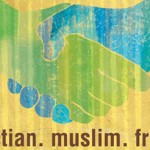This guest post was written by Kristin Reed Klade.

From the outside, it looked like any old interfaith dinner. Religiously moderate people of various faith traditions smiling and getting to know each other, a picturesque panel of four faith leaders smiling on a stage, ready with speeches about unity and love–the works.
That night turned out to be a bit different for me, though. This time I was experiencing it as part of the minority.
As a Lutheran seminary student from Chicago, I was attending a conference of the Islamic Society of North America (ISNA), learning about how emerging Jewish and Christian leaders could work to become allies with American Muslims in their fight for equality, and against hate and Islamophobia.
I got a little nervous when I read in the program that a pastor from a large evangelical church in Fort Worth (my beloved hometown) was going to address the crowd. Being from North Texas, I am well aware of typical megachurch theology, with its emphasis on evangelism and conversion. So I was unsure about how the pastor was going to come across to a room of mostly Muslims. I was certainly willing to give him a chance, though. Maybe he’s different, I thought.
He started off by recognizing the Christian obligation to love and protect our Muslim neighbors, and furthermore to be in relationship with them, to know them on a deeper level. But as he went on I began to grow uncomfortable. He spoke about the importance of being “real” with each other in interfaith dialogue. He praised his Muslim friend for being honest in sharing his belief that Christians will not go to heaven. The implication was that this was a mutual belief of damnation to hell of “the other,” a belief which I do not share. He also made some questionable comparisons between the New Testament and the Qur’an, implying that the New Testament alone teaches peace.
I believe this pastor had the best intentions. But I realized I was getting angry at the image of Christianity that he was projecting.
I was angry that my Christian faith, my hometown, the southern accent that sounded identical to my dad’s, and even the word “evangelical” (which literally means “spreading the Good News”) were all being misrepresented right before me. Furthermore, there was nothing I could (gracefully) do about it. Here was this pastor, tasked to essentially represent all Christians to this interfaith assembly, and I was screaming in my head: But you don’t represent me!
In that moment, as I was fighting back tears listening to him speak, I had a bit of a revelation: my feelings of misrepresentation were but a taste of what American Muslims experience every single day. How often are they the minority in the room? How often do we hear one Muslim’s opinion on something and assume it’s the norm? How often do the more extreme religious figures get the stage or the television screen because they are more charismatic or more fun to hate? Isn’t it true that those people get the stage because their charisma and divisiveness makes for a more interesting and lucrative narrative than if we were to give the microphone to a representative of the moderate?
That night I got a taste of why ISNA is so important: it bands together those moderate voices to try desperately to edge out the loud and often more organized extremist Muslims.
Jimmy Carter and the Presiding Bishop of my own church (the Evangelical Lutheran Church of America) were among the speakers at the conference. And afterwards both were criticized by various conservative interests for being guest speakers at a “terrorist organization.”
It may be exciting to think that’s true, but in reality, these American Muslims have so many of the same hopes, dreams, and concerns as those of other faiths, and they deserve a voice. They have done nothing to deserve our mistrust, and they shouldn’t have to constantly be digging themselves out of a hole they didn’t create.
As a society, we must look beyond gut reactions of fear and association. We must question news media of all kinds. We must seek out and listen to the moderate and underrepresented.
We must work together to dispel stereotypes about one another. Because you never know when the tables might be turned—when you, too, might suddenly find yourself wrongly cast in the role of dangerous outsider.
About Kristin Reed Klade
Kristin Reed Klade is a senior Master of Divinity student at the Lutheran School of Theology at Chicago, a seminary of the Evangelical Lutheran Church in America (ELCA). She is a candidate for ordained ministry in the ELCA and is originally from Fort Worth, Texas.












